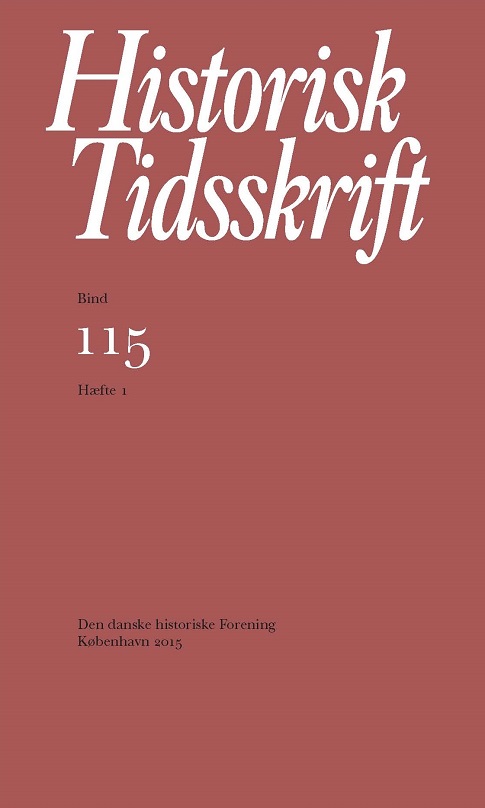Fodbold med vennerne? Dansk sport i tyske medier 1939-44
DOI:
https://doi.org/10.7146/ht.v115i1.56730Resumé
Football with friends? Danish sports in German media 1939-1944
The present paper concludes that a number of different discourses marked the coverage of the Danish-German sport collaboration during World War II in the German mass media (newspapers, sports magazines and newsreels). The discourses depended upon the German government’s purpose with their use of international German sport in the course of the changes in the German society and Germany’s relationship to Denmark during the war. The paper's theoretical approach is inspired by Norman Fairclough's work on the relation between the praxis of certain discourses and social developments. It supplies and differentiates conclusions drawn in the book Football with the foe by the historian Hans Bonde.
The German discourses from the outbreak of World War II to the German occupation of Denmark 9. April 1940 emphasize neutrality and friendship and were used to establish a picture of a close relationship between the two countries. Sports collaboration helped the German press present Germany as peaceful, and acknowledged by neutral states like Denmark despite the war.
After the invasion of Denmark, a discourse of Nordic sentiments became very important in the communication of the press along with the already present rhetoric of friendship. This portrayed Danish athletes as Nordic citizens, which some circles of the German society could interpret as a euphemism for the Nazi idea of a strong Aryan Scandinavia and thus be seen as communicating an attractive connection between Germany and Denmark.
A discourse of a strong Germany replaced the hitherto advocated Nordic sentiments and friendship discourses in the autumn of 1941 after anti-German riots in Copenhagen at a football match with the participation of an Austrian team, and the German invasion of the Soviet Union in June. The rising strain of the war effort on Germany’s resources made the sports media a supplier of success stories at the expense of the aforementioned „friendly“ discourses.
In the course of 1942, German-Danish sports events ceased, but Danish sports events were still sometimes shown in the German media until 1944. They served to meet the rising scarcity of success stories in the Germen press and to supply the German audience with a means of entertainment and relaxation (Ablenkung).
Downloads
Publiceret
Citation/Eksport
Nummer
Sektion
Licens
Ophavsret til bidrag i Historisk Tidsskrift tilhører forfatterne og Den danske historiske Forening som udgiver af Historisk Tidsskrift. For illustrationer gælder den ophavsret, som står anført i billedteksten. Ophavsretslovens almindelige bestemmelser gælder, hvilket vil sige, at ophavsretten gælder i 70 år efter forfatterens død. Bidrag i Historisk Tidsskrift må derfor, med forbehold for en ”moving wall” på tre år, frit downloades, læses, gemmes, anvendes og citeres (med kildeangivelse) i privat og videnskabelig sammenhæng, men de må ikke helt eller delvis genudgives af tredjepart, heller ikke i redigeret form, uden tilladelse fra forfatterne og Den danske historiske Forening. Henvendelse skal i så fald rettes til Historisk Tidsskrifts redaktion på histtid@hum.ku.dk.





